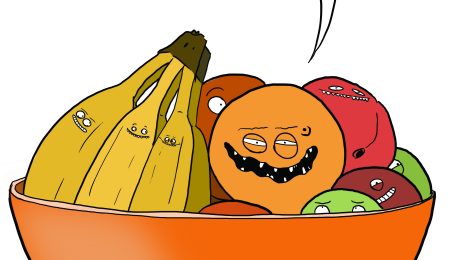Tips and tricks students picked up first semester to carry into this one
While the new year is a time when we try to look forward to bigger and better things, it’s also important to remember what we learned the year prior. We asked students to come up with some of the best lessons they picked up in first semester that they plan on carrying into the winter one.
Work hard, but have fun
You figure out a lot of what you should and shouldn’t do during your first couple of years at university, like not leaving major papers to the last minute or pulling an all-nighter when you know you have a test the next morning. They may seem pretty obvious, but we have all done it at least once. I am in my third year now, and am at the point where I am actually applying what I learned in my first couple of years at university. This past semester, I began following a rather simple philosophy: if you don’t have time to do something you like, you make the time for it. Studying is an important aspect of university life, but so is enjoying ourselves and the limited amount of time we have at this stage of our lives.
—Emily Manns
Learn to read… a map
Whether it’s to find your classes or plan the best bus route to meet up with a friend downtown, map reading is an invaluable skill. Looking back now, I regret not paying more attention in ninth grade geography when we were taught how to do this. It wasn’t until I found myself alone in an entirely new city that I discovered it’s a bit more difficult than I thought. “How hard could it be?” you may ask. Pretty hard, it turns out, once you find yourself pressed for time and searching desperately for the room you’re supposed to write your exam in. Don’t let yourself get into that position.
—Sarah Doan
Do your research!
My advice for the winter semester is straightforward: Once you have decided on the thesis of your paper, get your sources together and read them ASAP! The faster you get those research sources in your hands and in your head, the more in-depth and robust your paper will be. Also, use every resource available to you to do your research. I used RACER—accessible through the U of O library website—to borrow books from universities all over Canada for the first time last semester, and I was happily surprised by two things: the books and journals take no time to arrive so you can start reading them right away, and the vast list of titles makes reading up on your topic way more engaging for you and the person grading your essay.
—Stephanie Read
Work well with others
If I’ve learned anything from this past semester, it’s to not be afraid to work with new people. Most of my high school and college years were spent working in the comfort of old friends with the unsubstantiated fear of finding different people to work with. Teamwork is a valuable lesson to learn in university, but equally important is gaining the ability to adapt and work well with those outside of your comfort zone. You don’t always get to choose who you want to work with in life, and the sooner you learn that lesson, the better.
—Nadia Helal
Get to the library early!
Final exam time is probably the most stressful time of each semester. The number one lesson I’ve learned during this demanding time is to arrive at the library extremely early if you expect to get a decent seat. Last semester, I’d wake up each morning at around 10 a.m. thinking the library would be completely deserted, only to find other students walking around aimlessly like headless chickens searching for an empty seat. After what felt like hours of wandering and judgment from those who watched me make 17 laps around the floor, I’d finally give in to sitting in the worst possible seat: directly beside a stairwell with a creaky door and the constant echoes of screaming girls. Never again.
—Alexa Riviere
If you didn’t note it, now you do
Lectures can be incredibly frustrating, especially when you have to take notes on what you hear. The only way to beat the lecture blues is to get everything onto paper. Bold important questions and underline key terms. Add an asterisk in areas that require clarification. While it seems like a waste of time at first, you’ll find that the 40-minute mark during lectures where you started to nod off is now being used to keep your brain active. What’s even better about this is that you’ll be able to shoot random tidbits of information at your friends that you had no idea you even learned! And if you’re really lucky, those random tidbits might make good examples for exam questions. You can’t possibly go wrong: when in doubt, just write it down.
—Maya McDonald
Fake it ‘til you make it
Reflecting on the last semester, what I’ve resolved to practice moving forward is more pragmatic than studious, and it’s something that may be more transferable to life beyond university: the fine art of bluffing—also known as bullshit, in layman’s terms. Whether or not you elect to use this in your life, or deny its existence and continue your attempts to avoid ‘bluffing,’ is not as important as what you put into practice. I’m going to learn from my successful mistakes, and be honest with myself: I’m a bullshit artist. And I like to use my strengths, not throw them away.
—Colin MacDougall



